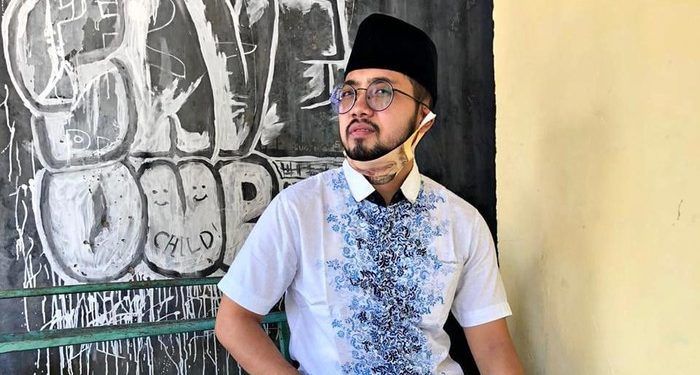Amar Alfikar became a hot topic on Twitter last June after sharing stories about his transition from being a woman to a man.
His story as a transgender person is unique because he grew up in a pesantren family.
Amar’s father is a priest, while his mother is Nyai.
Amar was born in Kendal, Central Java, on April 11, 1991. As a woman, her parents named her Amalia.
Since childhood, ‘Amalia’ had felt something odd about her. The soul of the man is more dominant.
After a long inner struggle, Amar began to find a bright spot about his identity when he heard a discourse from a Kyai.
“At one point, he once said that what God sees, is not whether we are male or female, but what God or Allah sees is our piety,” said the youngest of three siblings.
Slowly, Amar began to ‘make peace’ with his sexual orientation.
However, there is still one thing that weighs on his mind, namely his parents.
He was worried that when he confessed later, his parents, who had the reputation of being ‘important people’ in the boarding school in Kendal, would expel or not even recognize him as a child.
However, when Amar opened up, his parents tried to accept with cold heads.
“Everything needs a process, but fortunately my parents still love me.”
“Maybe my brothers took it a little longer,” said Amar.
After going to the family, Amar began to dare to open up outside. She took off her hijab and dressed like a man.
The transition process occurred when he was studying Indonesian literature at a public university in Semarang, Central Java.
Reprimands such as ‘would-be residents of hell’ and bullying have become his daily diet.
He was even sexually abused.
Amar admits that he is immune to people’s ridicule, but he can’t bear to see that his parents also have to face the consequences of his choice of life as a trans woman.
Amar revealed, many people questioned the authority of his father and mother as a Kiai and Nyai because they let their children ‘violate their nature’.
However, his father always had his own way of giving understanding to these people.
“You always use embracing religious languages, which are tolerant when faced with such questions. For example,
“‘Everyone has their own sins. Sin is God’s business and having a child-like this is a test for me as a parent.
“If I can’t accept my child, I will fail as a parent.
“If I neglect my child, it means that I am committing another sin because I hurt my own child,” said Amar imitating his father’s words.
Amar is grateful to have parents who are tolerant and very protective of him.
During his transition period, Amar’s relationship with his parents became even closer, especially with his mother.



